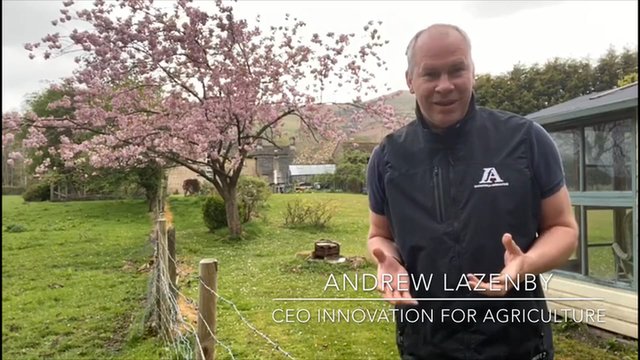part 1
part 2
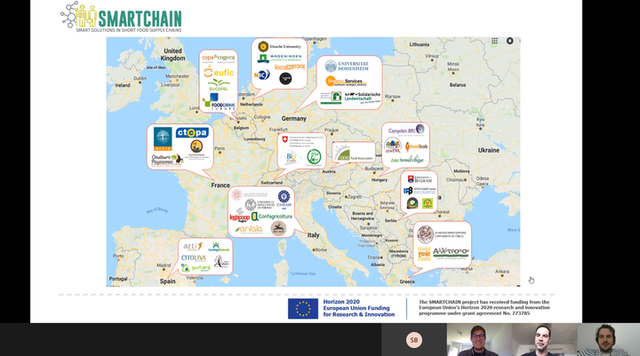
Synergy Project SMARTCHAIN
SMARTCHAIN aims is to foster and accelerate the shift towards collaborative Short Food Supply Chains (SFSCs) and, through specific actions and recommendations, to introduce new robust business models and innovative practical solution. This will enhance the competitiveness and sustainability of the European agri-food system.
What is the current influence of the pandemic on your project and how are you adapting and dealing with it?
Although most of the partners are working from home, all Work Packages (WPs) are carrying on their tasks and obligations, of course, in some cases with adaptations. For example, an online survey for consumers related to their consumption habits and their value perceptions of SFSCs in 4 countries (ES, DE, HU and EL) should be launched soon. Taking into account that the answers would be very much influenced by the COVID-19 pandemic, we agreed to postpone the survey until there is an improvement of the crisis. In case the current situation continued for a long time, as a plan B, a retrospective study (which would ask people to respond as if it was before the corona crisis) would be performed instead.
Within our Dissemination, Communication & Exploitation WP, a round of 9 workshops organised by the corresponding hub managers will be held between September and November 2020. The original idea was to have physical workshops, but in case the current crisis is not over after this summer, we have already started to discuss their online implementation.
What opportunities do you see for the future?
As the result of the COVID-19 pandemic, with limiting movement of goods, imposed personal freedom restrictions of consumers and causing border closure in several countries, SFSCs can play an essential role to guarantee the availability of food. For that reason, right now it is the perfect moment to highlight the benefits of SFSCs and promote their importance as sustainable alternatives to conventional long supply chains. In fact, some SFSC practitioners have reported increased customer numbers, attesting to the fact that demand for regional products has noticeably gone up. This development has also sparked new marketing campaigns over social media channels to help draw customers to the farm shops.
Due to the imposed contact restrictions, many farmers, as well as local authorities are currently forced to familiarize themselves with an array of digital tools, which might potentially accelerate the development and wider implementation of novel digital solutions for the SFSCs sector and its contiguous sectors.
In view of this, the main goal of SMARTCHAIN, the improvement of the competitiveness of SFSCs through innovations, is nowadays more relevant than ever, and we are optimistic to see this trend continue in the future.
What tips and tricks do you want to share with the SmartAgriHubs community to better adapt and react to the COVID-19 pandemic?
Efficient and frequent communication within the whole consortium/community is key to be able to identify and react to the risks, challenges and new opportunities that these complicated times bring to all of us. Additionally, sharing information, best practices and own experiences with others in open forums (e.g. online meetings, webinars) can help us foster collaboration to successfully overcome this worldwide pandemic.
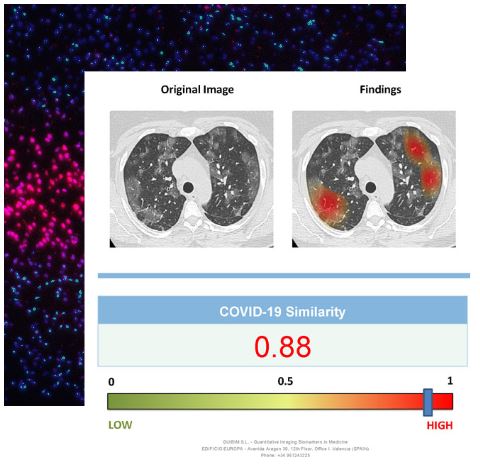
Robovision
Robovision offers an Artificial Intelligence (AI) based platform that allows no-coders to create their own AI-applications. Based on this platform they’ve been building a solid track record in a multitude of industries.
What is the current influence of the pandemic on your project and how are you adapting and dealing with it?
Urgency created by the pandemic has accelerated the willingness to adopt AI in the field of healthcare. The Imaging COVID-19 AI initiative is a multicentre European project to enhance computed tomography (CT) in the diagnosis of COVID-19 by using artificial intelligence. The project consortium (Robovision + Quibim and ImFusion are supported by the European Society of Medical Imaging Informatics and coordinated by the Netherlands Cancer Institute) will create a deep learning model for automated detection and classification of COVID-19 on CT scans, and for assessing disease severity in patients by quantification of lung involvement. Many different hospitals and institutions across Europe will collaborate to rapidly develop an AI solution in this time-sensitive research project. The AI model will be made freely available to all participants for clinical validation.
What challenges do you see for the future?
During the pandemic the term 'Covid-cowboys' has been coined by journalists. These are organisations that quickly hack something together that has on a superficial level the same result. When one investigates deeper it will be noticeable how these projects are lacking proper scientific protocol and medical privacy. It is our task to educate, and keep the standards high in such an environment.
What opportunities do you see for the future?
The adoption of AI tools in the medical field will rise and with such an intelligent and vocal user base we will quickly see an explosion of new ideas that we can take towards operation.
What tips and tricks do you want to share with the SmartAgriHubs community to better adapt and react to the COVID-19 pandemic?
Never waste a good crisis, these are the moments when people question the status quo and get creative to overcome the problems at hand. This is when adopting to new things generates less friction than usual. Look around, the ideas are out there. Define them and apply them in a way you can scale it and pivot if necessary.
DIH Innovation for Agriculture
Innovation for Agriculture (IFA) connects farmers with farming research. They work with leading agricultural researchers, businesses, landowners, and farmers to develop the knowledge and technologies that will make modern farming more sustainable, resilient and productive.
What is the current influence of the pandemic on your project and how are you adapting and dealing with it?
Agricultural shows throughout the country are having to cancel due to the pandemic. These shows are at the heart of our farming community and provide a platform for adverting farming businesses and livestock, as well as being an important social occasion. IFA is a consortium of agricultural societies, most of which have their own shows, and IFA use these shows as an opportunity to reach more farmers that might benefit from our work.
To help overcome the necessary cancellation of these shows, IFA partnered with The Greatest Online Agricultural Show, to provide an online platform to facilitate usual show activities. From livestock classes, to cookery demonstrations and trade stands, we created a varied programme to offer a unique show experience to farmers and the general public. The main challenges in achieving were technological, as a show of this scale has not been attempted online before. However, through excellent work from web teams including Altido and Cloud-lines, we now have functional platforms that facilitate everything we set out to do. We have also had excellent support and encouragement from the farming community. Due to the lockdown rules, our ability to run knowledge exchange seminars will undoubtedly be impaired. However, we have been able to use The Greatest Online Agricultural Show to share research and farming methods from our staff and other industry leaders, by having our own ‘Innovation Theatre’ that show attendees can visit.
The show took place on May 2nd and had over 5,000 visitors. The livestock competitions had over 800 animals entered and over 200 organisations had a virtual trade stand. Through donations from exhibitors and visitors, over £16,000 was raised for 5 farming charities. Whilst a virtual show cannot replace the agricultural shows, we hope that The Greatest Online Agricultural Show helped lift the spirits of agricultural industry and provided much needed services to the farming community.
What challenges do you see for the future?
As social distancing measures will stay in place for the foreseeable future, much of our work will need to be adapted to work within the new way of life. IFA have successfully used technology such as Microsoft Teams to facilitate online communications but applying an online method of knowledge exchange may not be achievable for everyone. Whilst access to the internet is a limiting factor, a bigger challenge may be overcoming the mistrust of new technology that some of our older farmers have. However, with travel restrictions now in place, people may be more willing to try new methods of communication.
What opportunities do you see for the future?
The benefits of technology, the need for data collection and the importance of communication have never been more apparent. Perhaps, after the Pandemic, people will be more willing to utilize technology in their own lives and businesses. This could make knowledge exchange possible on a much quicker time scale, and accessible to more people due to the lack of geographical limitations.
What tips and tricks do you want to share with the SmartAgriHubs community to better adapt and react to the COVID-19 pandemic?
I think timing is crucial for any organisation trying to react to the COVID–19 pandemic. The Greatest Online Agricultural Show has received huge support from the community, but the interest was first captured because it was the first of its kind. Whilst organisations should not react in hast, adaptations to services should be implemented as soon as realistically possible to meet the needs of its consumers.

Interview with TSSG
TSSG pioneers research to advance the science and role of ICT to benefit humanity.
What is the current influence of the pandemic on your project and how are you adapting and dealing with it?
While the situation at the beginning was difficult, TSSG turned on a pin to continue to perform, deliver and all the while keeping our staff at the forefront of any decisions that were to be made.
Many of our staff are on national and European projects, all of which undertook risk assessments – while the impact to date, did not affect our work, as many staff do not need access to labs etc. The greatest impact was to ensure that our staff were comfortable working from home and were available when possible via digital solutions.
What challenges do you see for the future?
Economically the impact will be great, and it will have an impact on all sectors including R&D. Most importantly, we will see the greatest impact on the SME’s and as such innovative solutions to rebuild the economy will be welcomed.
In many cases the current projects have not yet been affected, and we are hopeful that the ICT solutions we work on for SME’s and Industry partners will be what will differentiate them in the future and support a model of success going forward.
We have found nationally that many SME’s are still engaged with research. Many research centers, have reoriented their work to combat COVID-19.
What opportunities do you see for the future?
TSSG are among the broad team of global researchers contributing to the battle against this invisible threat. Their multi-disciplinary research model has the flexibility to re-focus projects with the potential of creating innovative solutions to treatment, prevention and assisting the often-difficult social distancing measures currently in place.
By applying their extensive expertise in information communications technology (ICT), researchers in TSSG are working together to develop both short as well as long term solutions for COVID-19. By incorporating their experience in molecular and bio-nano communications, sensor technology and blockchain, the team in TSSG along with partners in USA and Finland are working on six possible solutions to various issues.
Dr. Sasitharan Balasubramaniam, Director of Research in TSSG, praises his team “We are incredibly proud of how fast our researchers have refocused their strategy and joined together in an attempt to contain this virus. Solving these challenges requires rapid responses and creative solutions and we are hopeful that many of our novel concepts will produce promising results.”
What tips and tricks do you want to share with the SmartAgriHubs community to better adapt and react to the COVID-19 pandemic?
We have regular catch ups and coffee mornings all of which are online, we are encouraged to take note on our wellbeing and mental health during this difficult time and are encouraged to reach out to colleagues for support. We are also reminded to take some time away from social media, the news and other outlets that can negatively impact our moods.
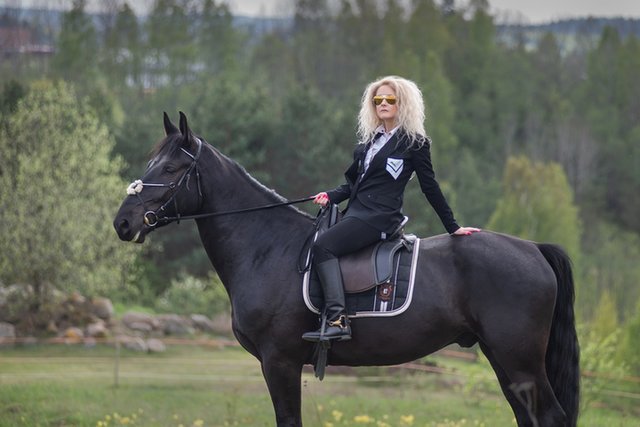
Interview with Kristina Šermukšnytė-Alešiūnienė
Senior Product Development and Innovation Manager, CSPO at ART21, Ltd.
Cluster Manager at AGRIFOOD LITHUANIA DIH
What is the current influence of the pandemic on your project and how are you adapting and dealing with it?
The government sector is lagging behind the business sector, some routine services such as notaries and approval of transactions are not yet enabled to be concluded digitally, so I see that certain processes are stalled due to technological aspects. At first, it was difficult to "retrain" to telecommuting, especially with partners and colleagues who are very close, but it has become clear that half of the live meetings and routine issues are not necessary at all and can be solved online.
Overall, the agri-food sector is considered to be one of the most conservative ones towards technology. In many cases digital transformation used to be neglected simply because there is either a low or no understanding how digitalisation should become a part of the business. So far the crisis has revealed that if we want to survive, the technology must be accepted in one way or another.
In general, I believe that this is an opportunity for digital business, as the sector begins to feel the importance of digitalisation in different ways.
What challenges do you see for the future?
I think that in the future it will be important to "invent" different methods of building relationships or concluding transactions through the digital world. If routine work is very easy to transfer to the virtual space and the quality does not suffer as a result, the methods of making new deals and forming partnerships, while looking at the computer screen, are still difficult to imagine.
Globalization is being challenged and this is a turn back to localized/nationalized supply and distribution systems. The agri-food value chain is expected to change fundamentally. This is where technology really steps in. So we need to think about that.
What opportunities do you see for the future?
I think during this period we have created new habits, we have realized that it is possible to live differently: much more efficiently and economically in relation to the organizations we represent and in our personal lives. If we focus the saved resources (time and financial) on value creation, progress will be measured exponentially.
If we are talking about the agri-food sector directly, there is no argument that digital transformation is not easily achievable. But here comes the biggest opportunity to change, to move towards the technology as close as never before. Consumer behavioural digitalisation has been going on for a while now, so basically there is no other choice for business but to adopt the technologies. Big Data, cloud analytics, blockchain, deep learning, machine learning, Artificial Intelligence, robotics and autonomous systems can and will help agri-food business to become more efficient and most importantly to stand more firmly against future challenges. So digitalisation brings the meaning of the word “technology” to a completely new level.
For quite some time the recognition of the importance of digitalisation in agri-food sector was very hard obstacle to overcome. The situation is changing drastically. “Digital” is a new trend to be. So there is no doubt that SMEs which will remain the same and will not embrace the changing industry, sooner or later they will be disrupted themselves. So again it is not a question of “if”, but “when”.
What tips and tricks do you want to share with the SmartAgriHubs community to better adapt and react to the COVID-19 pandemic?
As a community we can create a big value and change the whole process as we know it. There is just one condition: be the innovator, think out of the box and share your thoughts with others, no matter how crazy they might seem.
Business today is like riding a horse. You have already gained experience in riding, finally feel confident sitting in the saddle, you have created trust with the horse and feel that you can finally enjoy the ride. But here comes a challenge: a situation which you and your horse have never been in before. And you must adapt very quickly, there is no time for hesitation. Because there are just two options - either you fall down or adapt and ride further, adding the new riding technique that you both have just learned.
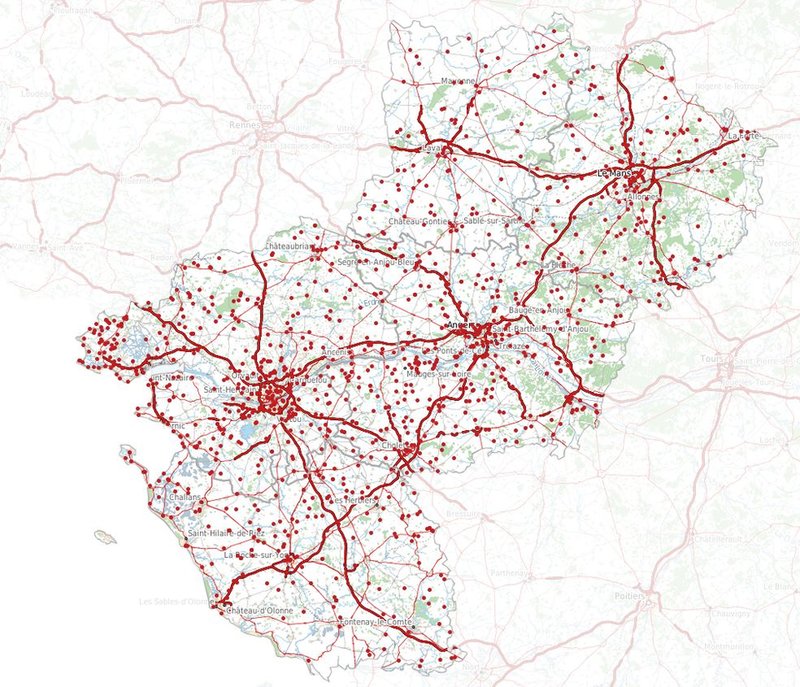
DIH Chamber of Agriculture of Pays de la Loire
Digital Innovation Hub Chamber of Agriculture of Pays de la Loire is the link between technological innovation, agriculture, energy, industry, mobility and health in de Pays de la Loire region.
In these times of sanitary crisis, how is the agri-food sector reorganising in France?
After the first consequences of the quarantine, when restaurants had to sell or give away their stock of food in order to save it, the food crisis spread to the top of the chain: Farmers.
Let’s remember that agriculture represents about 60 800 jobs in the Pays de la Loire Region and the food industry is the first employer of the territory. Still today, a lot of producers sell their products directly on markets, restaurants or school canteens. Therefore, when all these places were closed in March, some farmers were left with no more outlet.
One of the first solution that was set up was the organisation of drive-throughs where markets were located. Producers prepare orders that consumers simply pick-up.
The second solution is the partnership between the Regional Council, the Chamber of Agriculture of Pays de la Loire and several public entities in order to help the producers of the five departments composing the region to find local outlets, which requires some investments and expertise in logistics among other things.
This cooperation should contribute to the creation of online shops in all the five departments. Those shops will appear soon on the website www.approximite.fr which already references all the farm sales and producers’ shops of the Pays de la Loire Region.
In addition to the question of selling produce, the workforce has been a big issue as well. Indeed, a lot of the people working in the fields for the summer period come from Eastern Europe and can no longer cross the borders.
In response to this problematic, some websites were launched at a national level to help farms to harvest. This is how DIH Chambre d’Agriculture des Pays de la Loire is helping the agri-food sector during this global pandemic.

DIH Smart Digital Farming
Smart Digital Farming is an initiative of companies active in innovative precision farming -and livestock breeding with as main objectives; enhancing the competitiveness of enterprises active in Flanders, contributing with solutions to the societal and agricultural challenges, and stimulating open innovation, capacity building, and international opportunities within the Industry 4.0 ecosystem.
What is the current influence of the pandemic on your project and how are you adapting and dealing with it?
Like most people in Europe and across the world, we are all working from home. Our physical meetings have been replaced by teleconferences and phone calls. Whilst keeping us safe, it does mean that for many of us work and family life are being mixed up, thereby creating a work/life (lack of) balance where weekdays blend with the weekends. In short, it boils down to “work when it’s possible, take care of the family when it’s needed”. Other main changes include charging the phone more often due to the intense usage, going outside during a call and enjoying a breeze and/or the Sun. Especially the last one helps to maintain balance.
What challenges do you see for the future?
Face-2-face contact is crucial for businesses. It allows for effective brainstorms, communication, and other activaties. Moreover, due to the general negative business perception and pessimism throughout the market, companies will focus less on implementing innovation in their activities as they’ll have to carefully monitor their cash flow in order to stay afloat. This will affect our sector.
As a DIH, we foresee a drop in potential collaboration potential with traditional innovation partners in the short term. However, on the other hand, due to the new market conditions, new opportunities and actors will arise. It will be the DIH’s main challenge to identify them and connect to these actors in order to support them as much as possible.
What opportunities do you see for the future?
As a DIH, we foresee a drop in potential collaboration potential with traditional innovation partners in the short term. However, on the other hand, due to the new market conditions, new opportunities and actors will arise. It will be the DIH’s main challenge to identify them and connect to these actors in order to support them as much as possible.
What tips and tricks do you want to share with the SmartAgriHubs community to better adapt and react to the COVID-19 pandemic?
Trying to stick to a 9-5 mentality at all costs is difficult in these times – in fact, we need to be flexible as a sector. At the same time, sleep is very important so we should all keep an eye on that. If possible, use video during conference calls, have a digital coffee break with colleagues (or maybe a digital after-work drink).
Lastly, be nice to each other, we are all in this together, the stranger next to you or in front of the line has to deal with the same things. The least we can do is be polite and offer a smile.
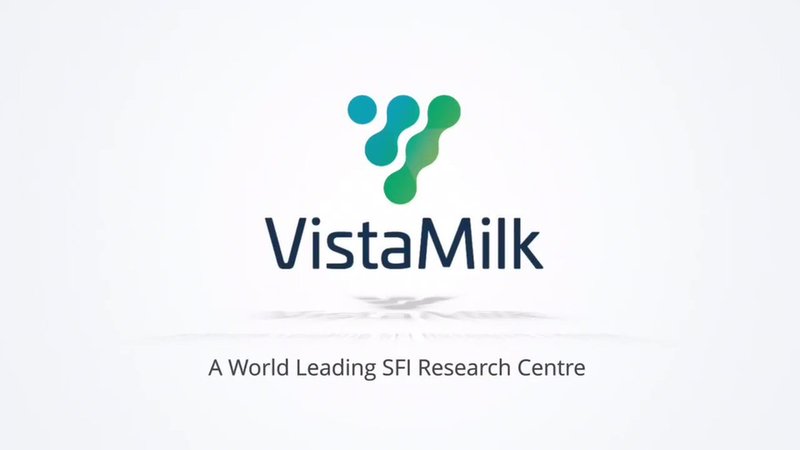
Interview with VistaMilk
The VistaMilk SFI Research Centre represents a unique collaboration between Agri-Food and information communications technology, research institutes and leading Irish/multinational food and ICT companies. Funded by Science Foundation Ireland and the Department of Agriculture Food and the Marine.
What is the current influence of the pandemic on your project and how are you adapting and dealing with it?
Research activities are continuing, although mostly run remotely, restricting access to data, equipment and expertise. As a consequence, the delivery of projects is likely to be delayed with potential cost impacts that will require evaluation once lockdown restrictions are lifted and a clearer path back to business-as-usual is identified.
We have created a risk register which will identify any potential issues. It will be updated on a regular basis and will be used as the basis for a regular progress update to our collaborators.
VistaMilk annual conference also had to be cancelled and will now have to be held as a shorter format, via a webinar. This will however greatly reduce the networking opportunities usually offered by such events.
What challenges do you see for the future?
The economic situation is likely to be challenging for all businesses and in particular SMEs in the near future and as a result their investment in RD&I could suffer from this.
Current projects, co-funded by industry partners, could also suffer from these cash flow and investment difficulties which might require adapting scopes, payment schedules and/or ambitions for some of them.
What opportunities do you see for the future?
Despite all its negative effects, this crisis is clearly demonstrating the value of digital solutions in ensuring business continuity and improvement both the DIHs services delivery as well as for the Agri-food industry itself. The “forced” adoption of digital and remote working technologies that this crisis brought to us might make it possible to deliver our services differently in the future (virtual meetings, virtual access to data and information).
This crisis also shows how vital a resilient Agri-food industry and supply chains are in times of crisis. New solutions and improved technologies will be required to ensure that in similar future events, the agri-food industry has the capacity to adapt and respond quickly.
All this should help to make a stronger case for investment for RD&I (from public and private sources) in both these areas.
What tips and tricks do you want to share with the SmartAgriHubs community to better adapt and react to the COVID-19 pandemic?
The “work from home” situation and limitations in the research activities that can be conducted has also been a good opportunity to encourage DIH staff member to avail of the numerous continuous development opportunities that have appeared online as a result.
Regular communication with our partners is key to maintaining confidence and to avoiding any potential barriers that may arise.
interviews with our community
Your stories
Our ecosystem is rising to the challenges posed by the current pandemic. Here you will read about the different ways our community is helping to mitigate the crisis. You will hear from DIHs, Synergy projects and community members. Together the agri-food sector is rising to face the challenges ahead!

